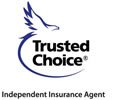Everyone wants to know how much car insurance will cost. Unfortunately, a specific answer may not be possible until all of the car insurance factors are weighed by the insurance company – and you receive the detailed quote.
As a local insurance agent in Dunmore, Honesdale, and Milford, Pennsylvania, this is an extremely common question that I receive. Based on the most common criteria, here are the most important car insurance factors that affect the cost of your car insurance:
- You: Your age, gender, and driving profile will have a significant influence on your premiums. From your record to how many miles you drive each year, these factors will affect your rates.
- Your Car: Expensive, sporty cars are much more expensive to insure. Also, security considerations and other interesting dynamics can affect rates as well.
- Credit Score: Your credit history will demonstrate responsibility, which is a good thing when shopping for virtually any type of insurance.
- Coverage: Full coverage with a very low deductible will naturally command a higher premium. Balancing the coverage you want with the cost will keep things comfortable.
Of course, there are items that can positively affect the cost of car insurance – found in the world of discounts. Take a look at some of the most common ones:
- Safety Devices (daytime running lights, motorized seatbelts, and security systems)
- Driving Courses
- Group Affiliations
- Driving Record (as a bonus to its natural effect)
- Loyalty
- Bundling (multiple cars or multiple insurance types – or both)
Take advantage of these common factors that affect car insurance rates. If you can, clean up your credit, choose a car with a lower cost of ownership, and pay attention to car insurance discounts. As things change, perhaps talking with your local insurance agent can improve your rates.
With knowledge of these key areas, you can make a more informed decision with your car insurance policy in Pennsylvania.
 Email an Agent
Email an Agent


 Click to Call
Click to Call Get Directions
Get Directions

